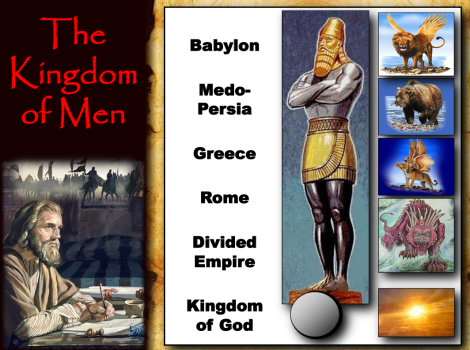J
Johann
Guest
I'm afraid not-There are just so many holes in this view and it doesn't fit the context.
You are correct to say that Paul does not desire to be "unclothed," but we must also consider what Paul means by being "clothed" and how that relates to being with the Lord before the resurrection.
1. The Meaning of "Unclothed" and "Clothed" in 2 Corinthians 5:4
2 Corinthians 5:4 (NKJV) reads:
"For we who are in this tent groan, being burdened, not because we want to be unclothed, but further clothed, that mortality may be swallowed up by life."
Greek: καὶ γὰρ οἱ ὄντες ἐν τῷ σκήνει στενάζομεν βαρούμενοι, ἐφ᾽ ᾧ οὐ θέλομεν ἐκδύσασθαι ἀλλ᾽ ἐπενδύσασθαι, ἵνα καταποθῇ τὸ θνητὸν ὑπὸ τῆς ζωῆς (kai gar hoi ontes en tō skēnē stenazomen baroumenoi, eph' hō ou thelomen ekdysasthai all' ependysasthai, hina katapothē to thnēton hypo tēs zōēs).
Let’s analyze the key verbs and terms in this verse:
ἐκδύσασθαι (ekdysasthai) – "to be unclothed" or "to take off."
ἐπενδύσασθαι (ependysasthai) – "to be further clothed" or "to put on over."
καταποθῇ (katapothē) – "to be swallowed up."
θνητὸν (thnēton) – "mortality" or "what is mortal."
ζωῆς (zōēs) – "life."
Paul is using a metaphor of clothing to describe the transition between our current mortal state and the future immortal state. His desire is not to be "unclothed" (ἐκδύσασθαι), which would mean being without a body. Instead, he wants to be "further clothed" (ἐπενδύσασθαι)—a term that implies the addition of something new rather than the removal of the body. This additional "clothing" is the immortal, glorified body that believers will receive at the resurrection.
The phrase ἵνα καταποθῇ τὸ θνητὸν ὑπὸ τῆς ζωῆς (hina katapothē to thnēton hypo tēs zōēs)—"that mortality may be swallowed up by life"—reinforces this idea. Paul desires that the mortal body, subject to death, will be overwhelmed and replaced by the immortal life that comes through Christ’s resurrection.
2. Paul's Desire to Be "Clothed"
Paul’s use of the verb ἐπενδύσασθαι (ependysasthai, "to be clothed upon") highlights that his longing is for a transformation, not for an existence without a body. This further clothing refers to the immortal body he will receive at the resurrection. He is not rejecting the body entirely, but rather seeking for it to be glorified and made immortal. In this way, mortality (θνητὸν, thnēton) is "swallowed up by life" (ζωῆς, zōēs). This is consistent with his teaching elsewhere, especially in 1 Corinthians 15:53, where he says:
"For this corruptible must put on incorruption, and this mortal must put on immortality."
Greek: δεῖ γὰρ τὸ φθαρτὸν τοῦτο ἐνδύσασθαι ἀφθαρσίαν, καὶ τὸ θνητὸν τοῦτο ἐνδύσασθαι ἀθανασίαν (dei gar to phtharton touto endysasthai aphtharsian, kai to thnēton touto endysasthai athanasian).
Here again, Paul uses the verb ἐνδύσασθαι (endysasthai) to describe the "putting on" of immortality at the resurrection. His longing is not to be without a body but to have his current body transformed into one that is incorruptible and immortal.
3. The State Between Death and Resurrection
Now, it is crucial to address the state between death and resurrection. While Paul does indeed long to be further clothed (at the resurrection), this does not negate the fact that believers are immediately present with the Lord after death, even while awaiting the resurrection of their glorified bodies.
In 2 Corinthians 5:8 (NKJV), Paul writes:
"We are confident, yes, well pleased rather to be absent from the body and to be present with the Lord." Greek: θαρροῦμεν δὲ καὶ εὐδοκοῦμεν μᾶλλον ἐκδημῆσαι ἐκ τοῦ σώματος καὶ ἐνδημῆσαι πρὸς τὸν κύριον (tharroumen de kai eudokoumen mallon ekdēmēsai ek tou sōmatos kai endēmēsai pros ton Kyrion).
Here, the contrast between ἐκδημῆσαι (ekdēmēsai, "to be absent from the body") and ἐνδημῆσαι (endēmēsai, "to be present with the Lord") indicates an immediate transition. Paul does not expect to be in a state of "unclothed" existence (a disembodied soul in the Platonic sense) for a long period, but rather to be with the Lord after death, even before the full "clothing" of the resurrection body. This does not imply immortality at death but the believer's conscious presence with Christ while awaiting the final resurrection.
4. Conclusion: Context of Paul's Teaching
Paul's teaching in 2 Corinthians 5:4 emphasizes that his ultimate hope is to be "clothed" with immortality at the resurrection. However, this does not exclude the intermediate state, where the soul is consciously present with the Lord after death but before receiving the glorified body. Paul’s concern is not for a disembodied existence (being "unclothed") but for the full redemption of his body.
The Greek terms and syntax make it clear that Paul longs for the final resurrection but also looks forward to being with the Lord immediately upon death. His desire for the "further clothing" (ἐπενδύσασθαι) of immortality does not negate the reality that believers are consciously present with Christ even before this final event.
Therefore, your interpretation, which sees this passage only as referring to a future resurrection with no intermediate state, does not fully account for Paul’s emphasis on the immediate presence with the Lord in 2 Corinthians 5:8 and Philippians 1:23 F2F.
But now we have other members on the band wagon and will make this conversation extremely difficult brother.
Suffice to say, I stand by my position as it stands written in Scriptures.
Shalom.
J.


